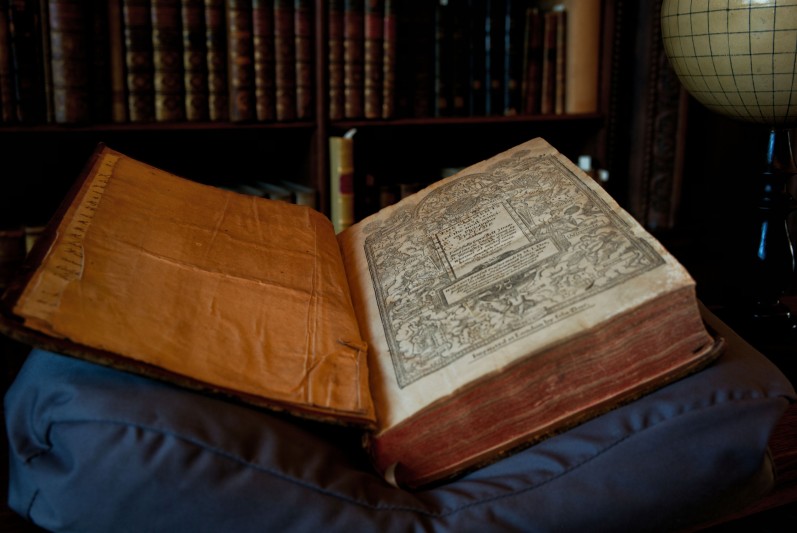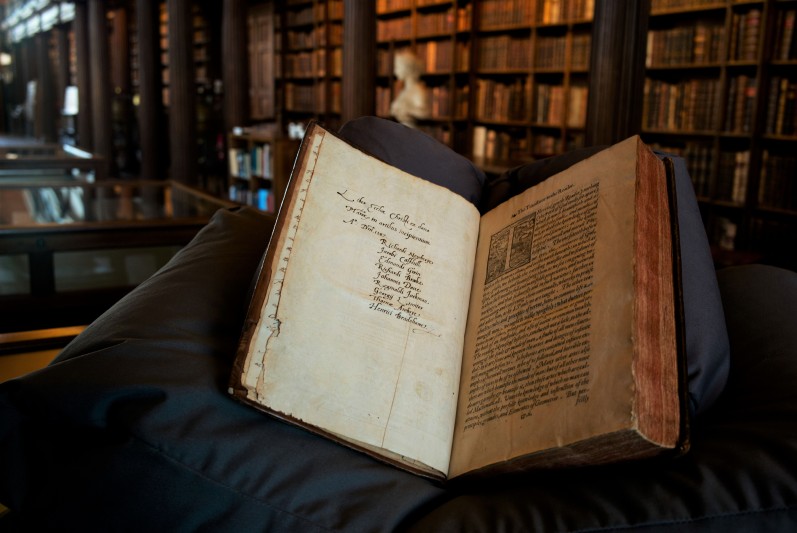Gabriel Sewell, College Librarian, writes: Christ Church Library is very grateful to FNL for its generous grant towards this acquisition. In addition to its significance as the first edition of the first complete English translation of Euclid’s Elements, Christ Church was keen to acquire the volume for its rich provenance and the opportunity to bring the book home. The volume had been held by Christ Church Library until some point in the 18th century when it was unfortunately sold as a duplicate and purchased for the Spencer Library by George John, 2nd Earl Spencer (1758-1834), the foremost bibliophile of his era and creator of perhaps the greatest library then in private hands. The agricultural depression of the 1880s compelled his grandson John Poyntz, 5th Earl Spencer (1835-1910), to sell the collection in 1892, when Mrs Enriqueta Augustina Rylands purchased the collection almost in its entirety for the John Rylands Library. The volume was sold in the John Rylands sale as a duplicate in 1988.
The volume is of great significance to Christ Church. It was given to the Library in 1587 by a group of nine students on receiving their Master of Arts degrees and the verso of the title-page records the names of the students. The group includes James Calfhill, headmaster of Durham Grammar School; Edmund Gwyn, Vicar of Market Lavington (and grandfather of Nell Gwynn); and George Limiter, civil servant and solicitor to the Dean and Chapter of Westminster. Christ Church was the first Oxford college to introduce a system of encouraging those graduating to give either a book or money to the Library, but there is much research to be done on how that practice was organised. The practice of students giving books to the Library upon receiving degrees was not codified until the first statutes were written in 1614. Three other examples of books containing group inscriptions (donated in 1583, 1584 and 1585) are still in the Library and the acquisition of this volume provides material evidence of the tradition of group donation and many opportunities for research on library history and the history of collecting, as well as on the content and the circulation of the text itself.
The book is also a witness to the history of mathematical teaching at Christ Church. The Library already holds extremely rich rare book holdings in the field of early mathematics, but mathematical education at Christ Church in the 16th and 17th centuries is quite understudied, partly due to the lack of archival records. The donation of the 1570 Euclid in 1587 might suggest that the group who donated it felt that it was time the College started teaching mathematics in the vernacular, rather than in Latin. The book is available for research, enjoyment and public engagement.

